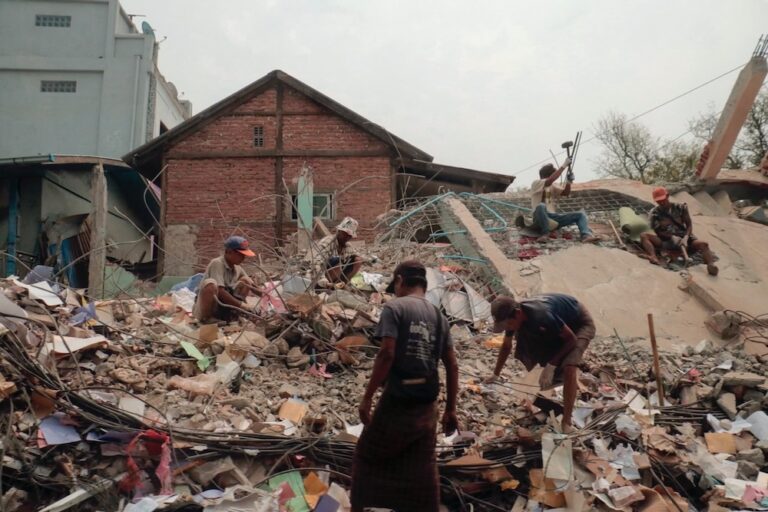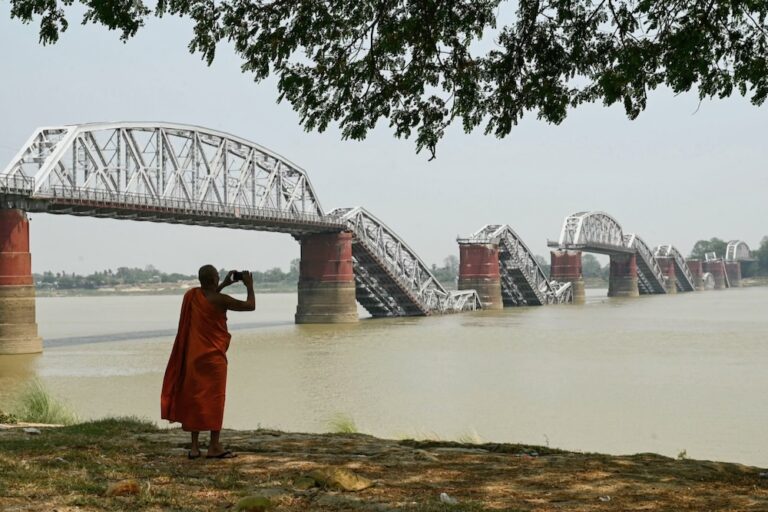Members of Burma's Press Council have threatened to resign if amendments are not made to the Printing and Publishing Enterprise Law which was recently approved by the Lower House of Parliament.
UPDATE from Mizzima News: Pyidaungsu Hluttaw ratifies two media laws (5 March 2014)
Burma’s Lower House of Parliament (Pyithu Hluttaw or People’s Assembly) approved the Printing and Publishing Enterprise Law (PPEL) on 4 July 2013. While observers welcomed some of the changes made in this latest draft of the law, many raised concerns about restrictions on free expression and the government’s ongoing control of the media. Members of Burma’s Press Council have threatened to resign if the bill is adopted in its current form, Mizzima reports.
The law draft, including certain amendments made by the Lower House, will now be passed on to the Upper House for approval. If both bodies sign off on the bill, then the Union Parliament has the power to sign the piece of legislation into law. Once passed, the legislation will replace the draconian 1962 Printers and Publishers Registration Act that was commonly used by the country’s former military rulers to silence dissent and exert control over the fourth estate, according to the Democratic Voice of Burma.
While abolishing some of the prison sentences under the 1962 law, the new bill keeps criminal sanctions as well as excessively high fines for media organisations breaching the law. It renews the government’s power to license newspapers, news websites and foreign news agencies and has strict rules on obscenity and the incitement of public disorder, Index on Censorship reports.
The bill has been controversial since it was first unveiled by the Information Ministry in late February. Journalists, watchdog agencies and various IFEX members unleashed heavy criticism on the bill at the time, with ARTICLE 19 warning that it would restore prior censorship and full government control.
The initial draft was created without consultation with the Press Council. A body of mostly journalists and people from social organisations throughout the country, the Press Council formed in 2012.
While Press Council members met with ministry officials three times to discuss the law, most of the council’s suggestions were not incorporated into the version passed by the Lower House on 4 July and “agreements were broken”, The Irawaddy reports. Moreover, the Ministry’s draft law has been viewed by members of the Press Council as an attempt to undercut their own attempts to formulate a separate press law in a more open and inclusive process.
The government’s bill was immediately condemned by the Press Council for being too broad in its scope and containing many restrictions on freedom of expression. “The draft Press Law would increase media oppression,” said Thiha Saw, a member of the Press Council. “The media isn’t the fourth pillar if it is under the Legislature, an authoritarian government, and the judiciary. If this law is passed, the fourth pillar of a free media won’t ever happen. That’s why I’m here to complain,” he explained.
The Press Council – which has requested that publishing licenses be regulated under commercial rather than media laws – says it will petition the Upper House and the President’s Office to have the bill revised. Several journalists announced that they would resign as members of the Press Council if the upper house approves the proposed law in its current form.
“The Press Council is right to take a stand on such a vital issue to the future of Myanmar. This is the first piece of core legislation to be changed since the current government gained power, and if this is bill is adopted, we would be safe to say that this government has no intention of democratising,” said ARTICLE 19. “Our analysis of the Printing and Publishing Enterprise Law bill shows that it falls far, far below international standards and if it were adopted would, in effect, retain a system of full government control over the media.”
“We seem to have reached a turning point in the reform process initiated by the government in 2011, one that will clarify its real intentions. The government cannot continue indefinitely to point to the measures it took in 2012 as evidence of its goodwill while at the same time trying to reassert control over the media,” Reporters Without Borders noted. “We are aware that reform of media legislation is a long process that requires the involvement of many government bodies but at no point should the news providers themselves be excluded from this process.”
In a letter reflecting on the situation, Mizzima encouraged stakeholders to work towards the emergence of legislation that would support the development of the Burmese media. Describing media as a bridge between the government and the people, the letter underscores the importance of media reform as Burma transitions to a more open society. It notes the role both the government and media professionals have to play in safeguarding free expression, to ensure that Burma can be proud of its reforms, both at home and in the eyes of the international community.
Burma’s upper house will now need to consider whether to pass the Information Ministry’s law, or consider the Press Council’s proposed revisions.



